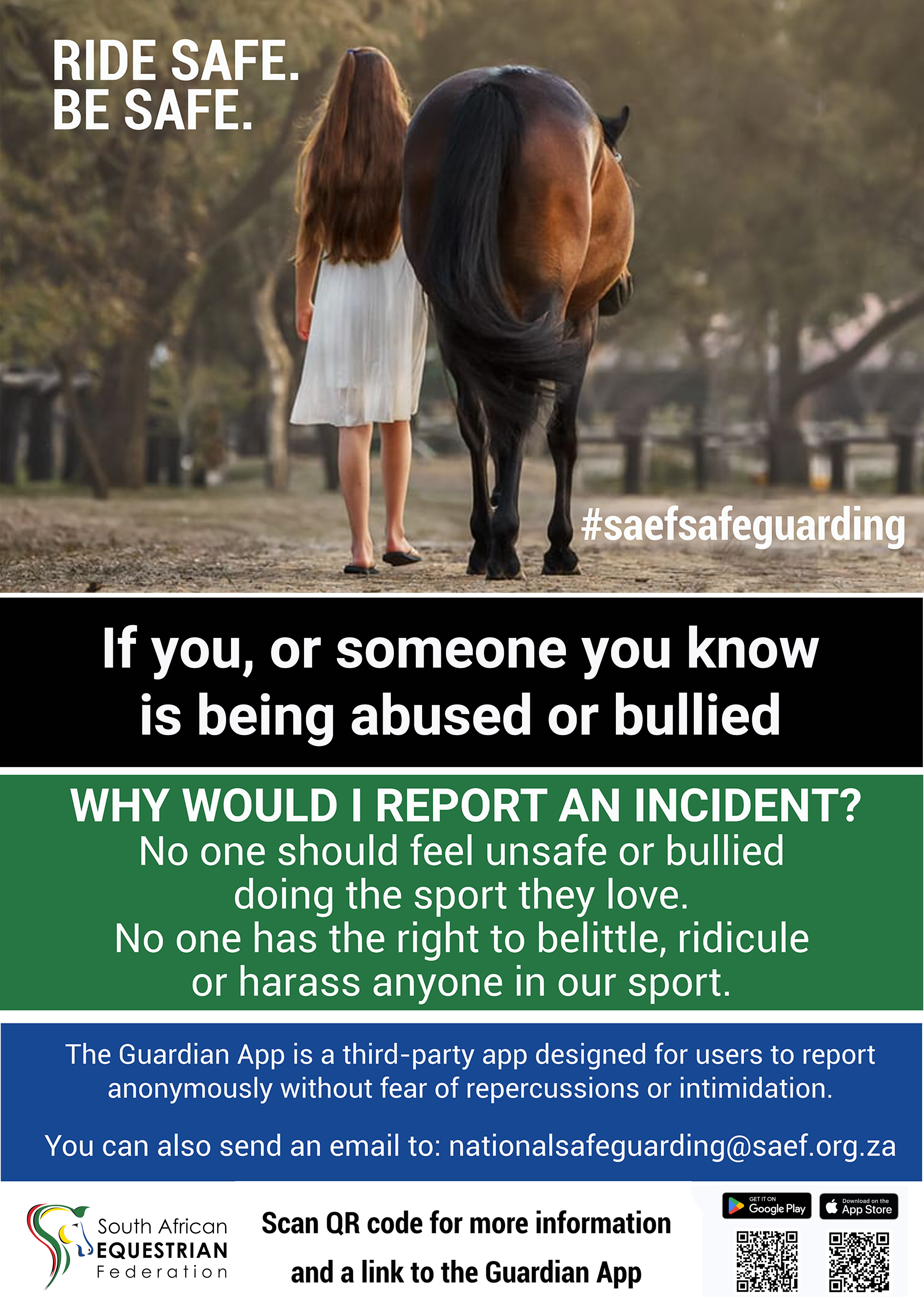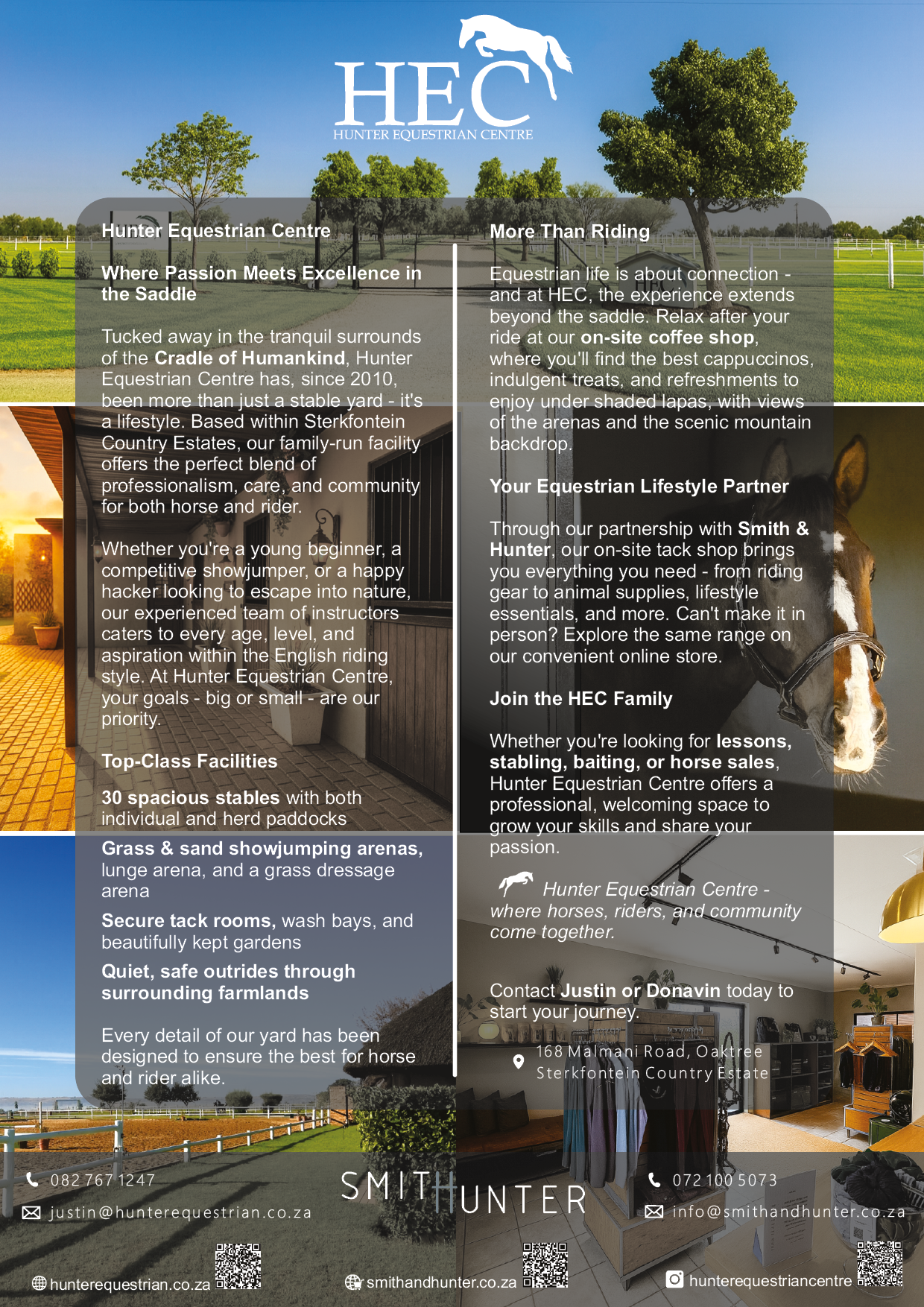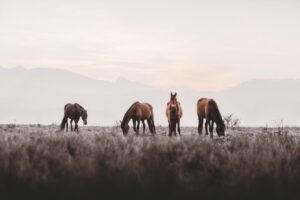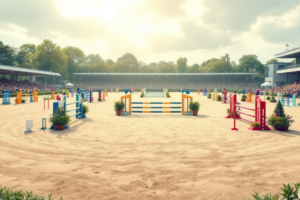This column is more sombre, but we find ourselves in sombre times. It is also a little misleading, to be honest, because my other columns focus on the lessons horses teach us that translate into the rest of life; but the grief that you experience losing a best friend is unlikely to prepare you for anything worse, because I am not entirely sure there IS anything worse. I am not being entirely flippant here – our animals give us an unconditional authentic affection that is very rare. I hope I never have too much to compare it to, but if I do, I think these ten lessons are a toolkit to loss, courtesy of some special horses, and in this instance, a small and cantankerous “Jerk” Russell named Spike.
1. YOU ARE NEVER PREPARED
It doesn’t matter if it’s been a long time coming. It doesn’t always help if there has been a long illness, or lameness. You are never truly prepared for the astonishing absence that a big presence leaves when they go. It’s not just that first morning that the stable or house is empty, either; it’s the first birthday. The first Christmas. The first show back where people are raising an eyebrow and asking if you are okay when there is a) no possible way you could possibly be okay, and b) no possible way to express it. You know it’s coming, you have processes in place, sometimes you even make the decision or are relieved by the end of a great suffering… but that void we are confronted with at 6am on a random Tuesday is gaping and hungry. Don’t punish yourself for being surprised. We all are.
2. SOME PEOPLE WILL NOT UNDERSTAND YOUR GRIEF… THAT IS OKAY
Your emotions and processes are yours, and you need to take the path that you need to mourn. Some people might judge others for sorrow over losing an abusive partner, some might be perplexed at the death of a horse that planted you like a carrot on a regular basis. People who don’t understand our grief at losing something likely don’t understand the joy that they also brought us – but we are seldom asked to explain our happiness. Friends and family don’t get that we are devastated over the loss of small stinky old dogs – that might have upset me ten years ago. Now, I feel a small “wabi-sabi” that I had something so worth missing, and that they will never know the pleasure of our whispered secrets into manes, or the special bonds we had with people who they didn’t like. They don’t need to understand. Other people will.
3. GRIEF COMES IN WAVES
It is necessary for grief to come in waves, because if it came all at once we would drown. So while people might rally around you at the time of loss, they should also check in weeks and months down the line (for those Tuesday mornings that catch you by surprise when no one chases the hadedas away, or whinneys from the stable, or brings you tea in bed). Grief is not linear, and I’m not even sure that time is anymore! It cannot be predicted, it cannot be controlled. Grief has no master other than that same heart that loved with such wild abandon – to misquote Khalil Gibran, as full as your cup was of joy, so shall sorrow render it that empty. But that’s the thing animals teach us most, perhaps… to have a stubborn heart. To keep loving in the face of certain and incomprehensible loss.
4. DON’T LEAVE WHEN THE GOING GETS HARD
Likewise, if you are there for the cups and cups of pleasure, so you must be present for the sadness. My vets have always asked me if I want to be present, and I’m always horrified that they would consider any alternative. But people do, and while I try not to judge them too harshly, what the heck? We won’t leave our people, we shouldn’t leave our animals. To abandon them on the last, and most final of journeys is to show a remarkable lack of gratitude, honour, and courage. Yes, it is hard. Know what? It should be. All be best things are. You sit there, you hold that carrot or paw and whisper and say how thankful you are for all the gifts that this soul and experience has brought you, and you keep yourself together until they are gone, and then it is your time to fall to the floor. They give us so much. You need to do this small hard part and be with them at the end.
5. THERE IS NO SHAME IN SORROW
It is hard to embrace loss, to be that crazy snivelling wreck that you might have rolled your own eyes at in the past. It is hard to admit that deep down, our animals evoke a flashback to childlike times when the world was a better place, problems were black and white, and nothing was better than sunshine and a patch of green grass with your best friend. We embrace that so wholeheartedly, but when it comes to losing it we try to revert to the most adult and resilient version of ourselves. That’s just crazy talk. You are allowed to cry, you are allowed to sit on the floor and refuse to move. You are allowed to refuse to fetch the ashes because that makes it more real (sorry Dr Ed Evans!) – you can’t live there forever, but you are allowed your sadness. Refusing to feel it is to deny a great love. To deny a great love is to risk the possibility of having it again one day.
6. YOUR PROCESS IS YOUR OWN, NO ONE ELSE’S
Some people remarry a few months after losing a spouse. Some get a new pet immediately. Others give up riding for a year or ten. While these may not seem the healthiest mechanisms, it is rarely our place to judge or offer our own mechanisms instead. A few years down the line I asked a widower why he had remarried so soon after losing a great love; he simply said “I don’t want to be alone.” That’s okay. Owning it and being in full knowledge and acceptance of your actions is not only cathartic, but empowering. Conversely, forcing another horse or pet on someone who is not ready is one of the worst things, for them and the animal. Let people grieve and heal how they need to. Be there. Be present. Listen. If they are about to ruin their lives, please offer a solution, but as soon as it is judgement you are closing the door to their already wounded heart. Be gentle.
7. THOSE FIVE STAGES… THEY’RE A THING
Denial, anger, bargaining, depression, acceptance. Sometimes all within a minute of one another, on a loop. My boss phoned me when I lost my first horse ten years ago. I let the phone ring to voicemail while I lay in my bed at 11am, and they phoned me back and back until I answered. When I did, they said “I know you are wondering why your nice horse is dead and so many other awful ones that you ride are probably going to live long, healthy lives. I’m going to give you some advice that a mentor gave me once: ‘If you own livestock, sooner or later you’re going to own deadstock.’” I remember laughing and crying and “snotting“ and feeling all of that so acutely – I was in disbelief this could have happened to me, I was furious it hadn’t happened to someone else, I was sure if I could be more careful I could control it better in the future, then I didn’t leave my bed for three days… and now I can do it again. I think it made me feel better to know that one of the top equestrians in the country had been through it and survived, just like Aretha Franklin. Acceptance will come. I promise. We all promise. Sometimes we forget to tell you that because we’ve done it so many times, but here is the kicker: next time it (inevitably) happens to us again, you’ll need to remind us back.
8. I RECOMMEND A CERTAIN AMOUNT OF MASOCHISM
Publicly or privately, I think it is good to lean into the pain, like a pony standing on a toe. Dig out those photos. Talk about it, so everyone or just the right someone. People have the most sympathy with loss as it happens, so delaying your hard conversations for later often means everyone forgets about it a little and you never get to them. Write down your favourite memories. Frame something. Go out looking like crap and have a coffee with your friends… and make it an Irish if you need. Cry. Carry tissues. Go for a ride on an unexciting but sweet horse. Play with a friend’s kitten. Remember that no one will ever replace your loss, and that is both cool and something you can immediately put down trying to do. You will have other, different kinds of love and excitement.
9. WE ARE THE LUCKY ONES
I have a friend in Cape Town who lost the love of her life, a love I don’t even really believe in, but I believed in it for them, and do you know what I really felt? Envy. I can’t imagine having that shared connection with a partner… and as I thought how lucky she was to lose something others might never have, I sat on the floor and memorised the feeling of my mare’s passage on a crisp winter evening at Shongweni SA Champs, with my best friend clapping and laughing on the sidelines. I thought of my vet telling me (and now I’m crying) that to earn the love of an old dog is one of the greatest blessings in life. I thought how she would never have that, and I felt both humbled and recalibrated. Two days later another friend told me that she was jealous of me and the fact that my loss of Spike was so profound, because it meant my love had been too. The love we find is not always the kind that society expects, exults, or encourages… often, it is much weirder, wilder, and more wonderful than that. How lucky we are to have something that makes our grief so painful.
10. IT IS INEVITABLE… IT WILL HAPPEN AGAIN… IT WILL FEEL THE SAME…
AND YOU’LL SURVIVE THAT TOO #SORRYNOTSORRY
Every time I lose someone it reminds me of stubbing my toe. Wait, listen: it happens, and you see stars, and depending on your process and where you are emotionally you kick the #&*@ing table, burst into tears, or breathe through your nose like a rhino as you stoically chant “worst part’s over, worst part’s over”. Almost everyone makes a mental pact to never ever let that happen ever again, but you know what? You are virtually guaranteed to do it again at some point in your life. Death, taxes, and stupid self-injury. But we won’t let that stop us chasing our kids around the lounge or make us wear steel-toe boots forever. Humans are amazing: as we grow we learn to accept that some amount of pain is necessary for the bliss of life, inevitable if you are really going to live and squeeze the juice out of it. We ride to feel. We love for the same reason. Loss is just the other side of that coin.
In conclusion, I have no answers. I have no solutions. I am two months down the line and I cry every time I look at photos, much like I did with my horses. The loss of an animal is the loss of authenticity in a world gone fake. It is the loss of something that makes us better, because simply put we are the best versions of ourselves in the saddle: more patient, more thoughtful, more empathetic. More humble, and if you aren’t, your horse will make sure you are! Our animals are a bright light in a sometimes dim world and losing that is an assault on the most vulnerable and optimistic part of us.
But, much like our animals, we carry on: to emulate Spike, we kick some grass and strut off onto the next adventure. Before any of my animals came to me, I didn’t know what I was missing out on. Instead of longing for the past, I choose to hope that even better things are coming that I haven’t imagined yet – snacks and friends, swims and games, long walks with loved ones and naps next to them at the end of a long day. Our animals teach us to prioritise the important, and to always believe it is coming around the next corner.
And really, what else in life could be more important?
In loving memory of Spike Lee Roberts (2004-2020).
Georgie Roberts is a writer, mother to various creatures, and dressage diva based in Johannesburg.
You can follow her at The Off Side and buy her coffee if you see her before 10am at a show, gin if it is after that, and Valium if it is at SANESA.

















